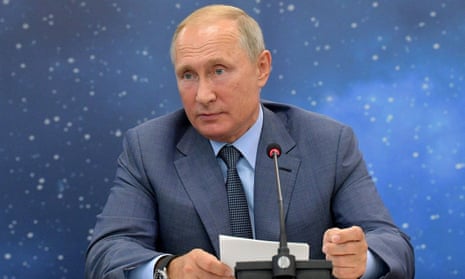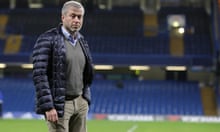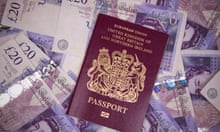The UK’s foreign secretary, Jeremy Hunt, faces a daunting diplomatic challenge to persuade wary fellow EU member states to impose further sanctions against Russia, despite the evidence that two Russian passport holders believed to be working for the country’s military intelligence agencyattempted to murder the former double agent Sergei Skripal on British soil.
By coincidence, the EU announced on Wednesday it was extending existing sanctions imposed on Russia – over its invasion of Ukraine – for a further six months. The sanctions are aimed at about 150 individuals and some 50 companies.
Theresa May, the UK prime minister, said she wanted the EU to follow the lead adopted by the US and extend sanctions to those Russians responsible for the use of chemical weapons, adding that it was something that the bloc had agreed in principle. She also called for fresh sanctions on those responsible for cyber-attacks and human rights violations. On Thursday, the UK will brief the UN security council.
Britain knows it is taking a risk in making this call just as it leaves the EU. For if Vladimir Putin and the military intelligence agency, the GRU, had any wider strategic purpose behind the poisoning of Skripal and his daughter Yulia, it was probably to test Europe’s unity amid the Brexit tumult.
UK ministers believe the quality of the evidence implicating the GRU is so strong it justifies a reappraisal of Russia by those European states that deny Moscow is truly determined to weaken the west.
Hunt, in his first set-piece speech as foreign secretary, delivered in the US last month, signalled the EU needed to stand shoulder to shoulder with the US and adopt further measures. He was aware of the damning evidence being gathered by the intelligence agencies when he made his remarks.
The additional US sanctions agreed in early August and in force from 27 August were introduced by the state department on the basis Russia had “used chemical weapons in violation of international law or lethal chemical weapons against its own nationals”.
The potential implications of these sanctions are not yet widely understood, partly because of the totally conflicting signals sent towards Russia by Donald Trump.
The state department release in August said the measures would terminate assistance to Russia except for urgent humanitarian issues, end some arms sales and financing, restrict access to US credit or other financial assistance and prohibit the export to Russia of restricted goods or technology. In theory, Aeroflot would no longer be flying to US airports.
The second batch of sanctions related to the poisoning case will be imposed after 90 days if Russia does not allow inspectors from the Organisation for the Prohibition of Chemical Weapons (OPCW) to confirm that it no longer has chemical weapons.
Russia, in a wider dispute with the west over limiting the OPCW's future powers to attribute responsibility for the use of chemical weapons, is hardly likely to consent to this. So in less than 90 days, Russia could face the most severe American sanctions in its history.
Europe has long been ideologically divided over Russia with nations to the east and south eager to retain commercial relations. Populist parties on the left and right also see no virtue in a renewed cold war. Indeed, such is the populists’ indulgence of Russia, some centrist leaders such as Guy Verhofstadt have said they will make the Russian threat a major issue in the European elections next March. So in the coming political battle for the continent between liberalism and populism, the evidence gathered by the British intelligence agencies may feature.
Yet many EU states will argue they have already demonstrated their solidarity with the UK by expelling diplomats in late March, and the latest evidence merely justifies the assumptions made then that Russia was behind the Salisbury attack six months ago. But only 18 EU states expelled diplomats.
Italy, Germany and Austria are usually listed as the states most reluctant to confront Moscow. By chance, Tass, the Russian news agency, announced on Wednesday the start of construction in Finland of the offshore segment of the Nord Stream 2 gas pipeline from Russia to Germany. Critics say Nord Stream reveals the true German attitude to Russia.
But even Emmanuel Macron, the French president, in an address last month to French diplomats, referred repeatedly to the end of the cold war and the need for a new dialogue with Russia over cybersecurity, chemical weapons, conventional weapons, territorial conflicts, space security and the protection of polar regions,
There is also the question of Syria. The French foreign minister, Jean-Yves Le Drian, underlined in an interview this week how much the west and Russia needed to cooperate to settle the civil war and avert an imminent humanitarian disaster in Idlib.
Russia, for its part, will respond to the British allegations with denials and diplomatic outreach to its allies in Europe.
On Tuesday, the Russian embassy put out a lengthy statement complaining Russia had been denied its legal rights by Britain’s refusal to allow its diplomats access to the Skripal. The statement said the Skripals “had been kept in isolation and under full control of British authorities”. Russia wanted to establish direct contact with the Skripals in order to verify their actual health situation, the conditions in which they were held and – most importantly – to ascertain whether their isolation was voluntary.
Russia says it has no knowledge of the individuals named by the British police and ridiculed May’s claim that the two men could be acting on the instruction of senior figures in the Russian state. But given the quality of the evidence assembled by the UK, the more credulous defenders of Russia in Europe are likely to feel chastened. Even Karin Kneissl, the Austrian foreign minister who danced and laughed with Putin at her wedding last month, may be feeling a little rueful.








